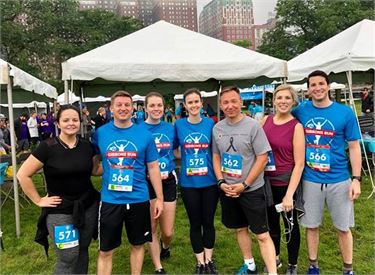
FROM OUR MANAGING PARTNER
Summer 2018 Newsletter
FROM OUR MANAGING PARTNER
Summer 2018 Newsletter
Summer is always a flurry of activity, and this one has been no exception. We know that keeping pace with current events can prove to be challenging, so we at Golan Christie Taglia remain vigilant for you. This issue of our newsletter contains both updates and recent developments including:
DOES YOUR BUSINESS QUALIFY FOR A TAX INCENTIVE
PROGRAM?
Daria M. Palermo discusses the numerous tax incentive options
available to commercial and industrial property owners. Learn about
the requirements, and how your business could benefit.
GCT PARTICIPATES IN AN EVENT THAT IS CLOSE TO OUR
COLLECTIVE HEART
Golan Christie Taglia continues its support of the Leukemia
Research Foundation in honor of a beloved friend and coworker.
UPDATE ON MANDATORY PAID SICK LEAVE LAWS AND A
SUPREME COURT DECISION AFFECTING EMPLOYMENT
AGREEMENTS
The grace period to comply with mandatory paid sick leave laws has
ended. Has your business thoroughly reviewed its policies to make
sure that all requirements are met? And, does your business have an
enforceable arbitration clause in place?
ADDRESSING NEGATIVE ONLINE REVIEWS WHEN THEY GO BIG?
“Going viral” has a downside when it involves the rapid spread of
negativity regarding your business or product. In the first part of this two-part series, Beverly A. Berneman summarizes what constitutes
defamation, and how to determine whether you should take action.
As we approach Fall, the season often associated with preservation and comfort, we at Golan Christie Taglia would like to express our gratitude, once again. It is such an honor to continue to counsel and help safeguard you and your business. We wish you abundance and wellbeing.
Stephen L. Golan
PARTNERSHIP TAX LAW ALERT
Is Your Business Eligible For A Tax Incentive Program?
Tax incentive
programs support
businesses by
encouraging job
growth and business
development.
A myriad of
financial incentive
programs are
available to
commercial and
industrial property
owners in Cook
County.
PARTNERSHIP TAX LAW ALERT
Is Your Business Eligible For A Tax Incentive Program?
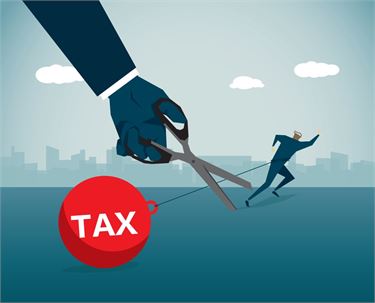
Commercial and Industrial property owners have a myriad of financial incentive programs available to them through the Cook County Property Tax Incentive program. For qualifying properties, an incentive application, with other required information, must be filed with the Cook County Assessor’s Office to begin the process. Once the application is filed, a control number is issued and work can commence on the property. It is important to note that work cannot commence on the property prior to obtaining the control number. Approval by resolution or ordinance by the municipality in which the property is located is also required.
WHY ARE TAX INCENTIVE PROGRAMS IMPORTANT?
Tax incentive programs support businesses by encouraging job growth and business development in certain Cook County communities. Without these incentives, commercial and industrial properties would be assessed at the regular rate of twenty-five percent (25%) of their market value. The tax incentive programs reduce assessments for a set period of time.
Some of the more common Property Tax Incentive Programs available are as follows:
Class 6(b) Property Tax Incentive – Industrial Properties
This incentive results in a twelve-year reduction in property assessments. Class 6(b) qualified and approved properties will be assessed at a rate of 10% for the first 10 years of the incentive, a rate of 15% for the 11th year, and a rate of 20% for the 12th and final. To qualify, the property must be used primarily for industrial purposes and be new construction, or subject to a substantial rehabilitation, or involve the re-occupancy of an abandoned industrial property. The Class 6(b) incentive may be renewed for an additional period of 12 years.
Class 7(a) and (b) Property Tax Incentives – Commercial Properties
Available to commercial properties within specific areas in need of commercial development such as a Redevelopment Area, Empowerment Zone, or Federal Enterprise Zone. Qualifying Commercial projects costing less than $2 million may be eligible for the 7(a) incentive. Qualifying Commercial projects costing more than $2 million may be eligible for the 7(b) incentive. Qualifying incentive commercial properties are assessed similarly to the Class 6(b) incentive structure.
Class 7(c) Property Tax Incentive – Commercial Properties
Applies to qualifying commercial properties in any area in Cook County. To qualify, the commercial property must be new construction, or subject to a substantial rehabilitation, or involve the re-occupancy of an abandoned commercial property. The incentive property is subject to a 5-year reduction. Once qualified and approved, the property will be assessed at a rate of 10% for the first 3 years, a rate of 15% for the 4th year, and 20% for the fifth year. It is important to note that the Class 7 incentives are not renewable.
Class 8 Property Tax Incentive – Commercial and Industrial Properties
Applies to commercial and industrial properties in areas of Cook County that are experiencing severe economic stagnation. The purpose of the incentive is to promote and encourage industrial and commercial development in these areas. This incentive requires compliance with the Cook County Living Wage Ordinance and must be at least ten (10) contiguous acres. Properties located in Bloom, Bremen, Calumet, Rich, and Thornton are eligible for the incentive without having to apply to the local governing body for certification of the area of the location of the property. To qualify, the property must be new construction, or subject to a substantial rehabilitation, or involve the re-occupancy of an abandoned property. Applications must be made to the Cook County Assessor prior to re-occupancy or any substantial rehabilitation. Qualified and approved commercial and industrial properties will be granted a staggered 12-year reduction in assessed percentage similar to the Class 6(b). The Class 8 incentive may be renewed.
TO LEARN MORE . . .
If you have any questions, or would like to find out if your commercial or industrial property may qualify for one of Cook County’s incentive programs, please contact one of our property tax attorneys at Golan Christie Taglia LLP, who can help determine your eligibility.
ANNOUNCEMENTS
ABC Gibbons 5K
ANNOUNCEMENTS
ABC Gibbons 5K

Once again, Golan Christie Taglia LLP fielded a team of racers at the ABC Gibbons 5K. There has always been a sense of family at GCT. When we lost a charismatic and kind coworker to acute lymphoma, a form of leukemia, in May of 2015 the firm was drawn to ABC Gibbons 5K—not only to support the Leukemia Research Foundation, but also to honor our friend. 2018 was the fourth year that GCT has participated in the ABC Gibbons event. The enthusiasm exhibited by participants, wonderful cause, perfect course along the waterfront and chance to honor a lost friend is what makes this event so special.

MANDATORY PAID SICK LEAVE UPDATE
MANDATORY PAID SICK LEAVE UPDATE
Last year, both the City of Chicago and Cook County enacted mandatory paid sick leave laws, which went into effect on July 1, 2017. The agency responsible for enforcing the law, the Cook County Commission on Human Rights, previously advised employers that it would extend a one-year “grace period” to allow employers time to comply, in good faith, with the new law. During the grace period, enforcement actions were focused on intentional failures to comply, rather than on employers who attempted to comply, but may have failed to appreciate some nuance or unusual aspect. Now that the one-year period is over, all employers located in Cook County have even more reason to review their paid sick leave policies to make extra sure that they are in line with the new requirements.
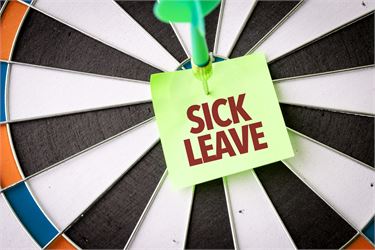
Some municipalities in Cook County have opted out of the sick leave law, meaning that it does not apply to employers who are located in those municipalities. The question, however, is not as simple as whether your town voted to opt out. If your town is not subject to home rule, or did not also pass its own sick leave ordinance that effectively preempted the County ordinance, then the opt out might not be lawful. This puts employers in a difficult position; while an unlawful opt out does not subject the town to any negative repercussions, it does place the risk of an enforcement action on the employers whose businesses are located in that town.

Additionally, if an employer is located in an optout municipality, but sends its employees to work in another municipality or an unincorporated area of Cook County, the employees may still be covered. The burden remains on each individual employer to determine which rule applies.
SUPREME COURT UPHOLDS CLASS ACTION WAIVER IN EMPLOYMENT AGREEMENT
SUPREME COURT UPHOLDS CLASS ACTION WAIVER IN EMPLOYMENT AGREEMENT
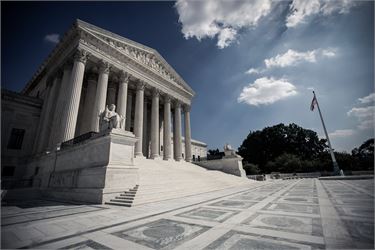
In a decision issued on May 21, 2018, the U.S. Supreme Court ruled that an employer can require its employees to individually arbitrate any employment disputes, if the employee signs a valid employment arbitration agreement. The decision in Epic Systems Corp. v. Lewis has been widely lauded as a significant victory for employers who are hoping to avoid defending potentially costly class and collection action lawsuits in court.
While there are many pros and cons of moving employment disputes to arbitration instead of the court system, it requires an individualized analysis of what is best for your company. Also, drafting an enforceable arbitration clause is no easy task, so it is important to consult with qualified legal counsel before adding a provision to your existing employment agreements.
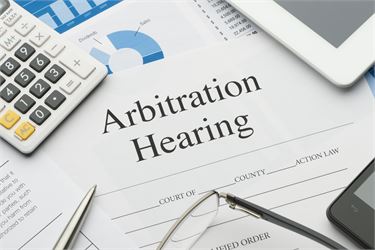
If you have questions or need additional information, please contact an employment attorney at Golan Christie Taglia LLP.

INTELLECTUAL PROPERTY NEWS THAT AFFECTS YOUR BUSINESS
CYBER-CRITICS: ADDRESSING NEGATIVE ONLINE REVIEWS
INTELLECTUAL PROPERTY NEWS THAT AFFECTS YOUR BUSINESS
CYBER-CRITICS: ADDRESSING NEGATIVE ONLINE REVIEWS
This is Part I of a two-part series discussing the plague of negative reviews for one’s business. This first part distinguishes illegal reviews (defamatory content) from simply negative reviews.
“Going viral” (or spreading across the Internet) acts as the benchmark to the successful online promotion for one’s business or brand. But businesses often overlook the downside of “going viral” when the content is a negative online review. Consumers comb through the Internet and rely on online review websites to determine the quality of businesses’ goods and services. Senior websites such as Yelp, Google, and Facebook and newer ones like Airbnb and Angie’s List have become the Better Business Bureau for consumers. Unlike the Better Business Bureau, the Internet often fails to evaluate the nature of the negative review and puts that burden on the harmed businesses to correct the record.

QUESTION 1: DOES THE ONLINE POST CONSTITUTE A DEFAMATORY STATEMENT OR JUST A NEGATIVE REVIEW?
“Slander” (spoken statements) and “libel” (written statements) fall under the umbrella of defamation. A defamatory statement is: (a) a false statement (b) of or concerning person or corporation (c) published to a third party (d) that causes damages to the person or corporation.
For purposes of understanding a defamatory statement, consider the following hypothetical online Yelp review for each element: “Fake Corp. uses shoddy materials such as the product called Flimsy Wood, which is the subject of a bunch of products liability lawsuits”.
(a) False Statement. Under Illinois law, the speaker must only establish the review to be “substantially true.” With our hypothetical review, we can assume that Flimsy Wood is the subject of products liability lawsuits. So, Fake Corp. must be sure it does not use Flimsy Wood or products similar to Flimsy Wood because the review would be substantially true and, thus, no longer be defamatory.
(b) Of or Concerning Corporation. A false online review must concern a business; otherwise there can be no harm to the business’ reputation. In this scenario, this review named Fake Corp. If the review hadn’t named Fake Corp. but identified it as a business located in Fake Corp.’s neighborhood, Fake Corp. would have to evaluate whether, on the face of the publication, a third party would reasonably understand that the statement was about Fake Corp.
(c) Publication. An allegedly defamatory remark is “published” when it is communicated to someone other than the defaming party. Using the “Share” or “Repost” feature could be viewed as publication of a false statement even when the sharer is not the original speaker. In the Fake Corp. example, a post on Yelp clearly constitutes publication.
(d) Damages. Establishing damages from a defamatory statement is difficult because the response to the statement often occurs offline. The business can also lose potential customers and not even realize the loss occurred.
In Illinois, there are two types of defamation: defamation per se and defamation per quod. In defamation per se, damages are presumed because the statement is hurtful on its face. Defamation per se applies to statements that imply (i) a commission of a crime; (ii) an inability to perform, or lack of integrity in the performance of its services; or (iii) inability in one’s trade, profession, or business.
However, if a statement can reasonably be innocently interpreted in context, the statement is no longer defamation per se. With our Yelp example, the online review can be construed as defamation per se if Flimsy Wood is illegal or has been known to cause health problems, as opposed to solely being of a lower quality. Damages from defamation per quod are not presumed. Defamation per quod considers the context surrounding the statements or other extrinsic evidence to demonstrate the defamatory nature because it is not clear on the statement’s face. For example, Fake Corp. may need to investigate the context of using Flimsy Wood in its products to demonstrate the defamatory nature of the statement. Further, Fake Corp. will need to determine whether any customers were actually lost due to this statement.
Given the complexity of evaluating an online review as defamatory, a second opinion by an attorney is recommended before any action.
QUESTION 2: IS THERE ANY REASON THAT THE DEFAMATORY ONLINE REVIEW IS LEGALLY PROTECTED?
(a) First Amendment. The first line of defense for an online reviewer is the First Amendment and its protection of one’s right to speech and to petition. The First Amendment extends to an online reviewer’s opinion of a business so the test is whether the online review can reasonably be interpreted as stating an actual fact.
(b) Privilege. An online review may be privileged considering the audience and the speaker, which removes the illegality of its statement. Qualified privilege generally protects news organizations reporting statements by law enforcement or government officials. But an Illinois statute extends qualified privilege to the defamatory statements made about an employee by his coworkers and management.
(c) Anti-SLAPP. Illinois protects online reviewers from retaliatory lawsuits brought without merit, known as “SLAPPS.” A strategic lawsuit against public participation (SLAPP) is seen as curbing an individual’s attempt to participate in government through exercise of his or her first amendment rights. Online reviewers can cloud their defamatory statements with a call for government regulations or intervention, which may receive protection under Illinois’ Anti-SLAPP laws.
CONCLUSION
It is difficult not to react when one’s company is being discredited online but businesses should evaluate before any action, and seek an objective second opinion. No one wants to “go viral” based on a negative review but wasting money and time over a customer’s bad experience will not help the situation.
Part II where we discuss the options and practicalities for the removal of these reviews from the Internet will appear in our next newsletter.
If you have questions or need additional information, please contact an intellectual property attorney at Golan Christie Taglia LLP.


